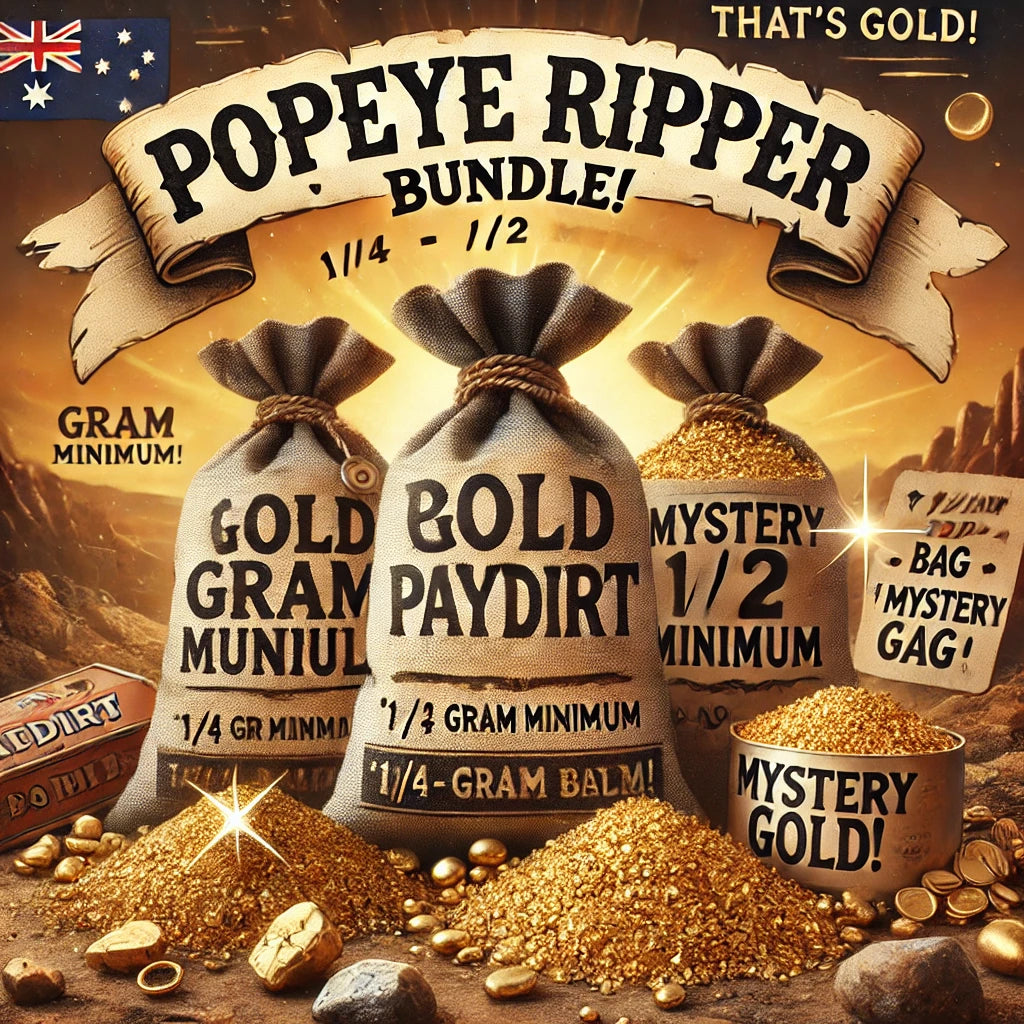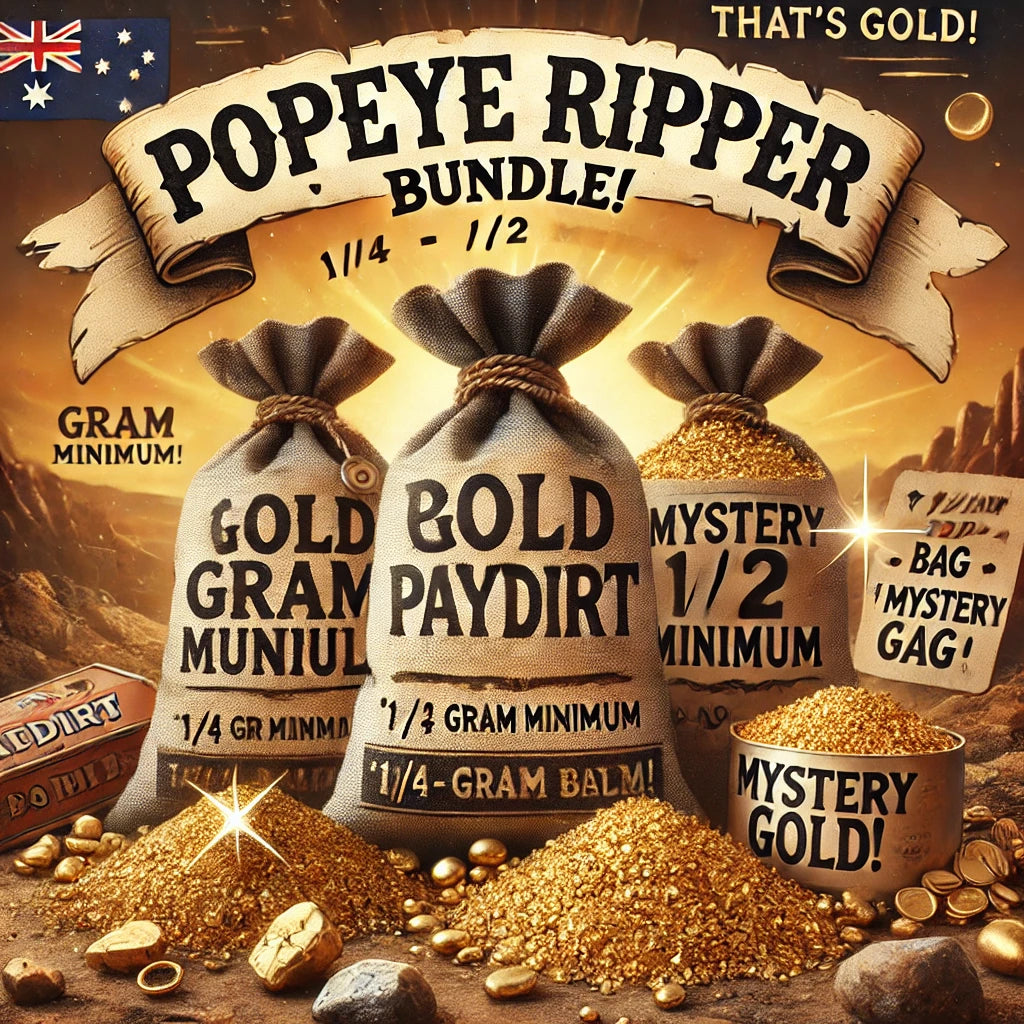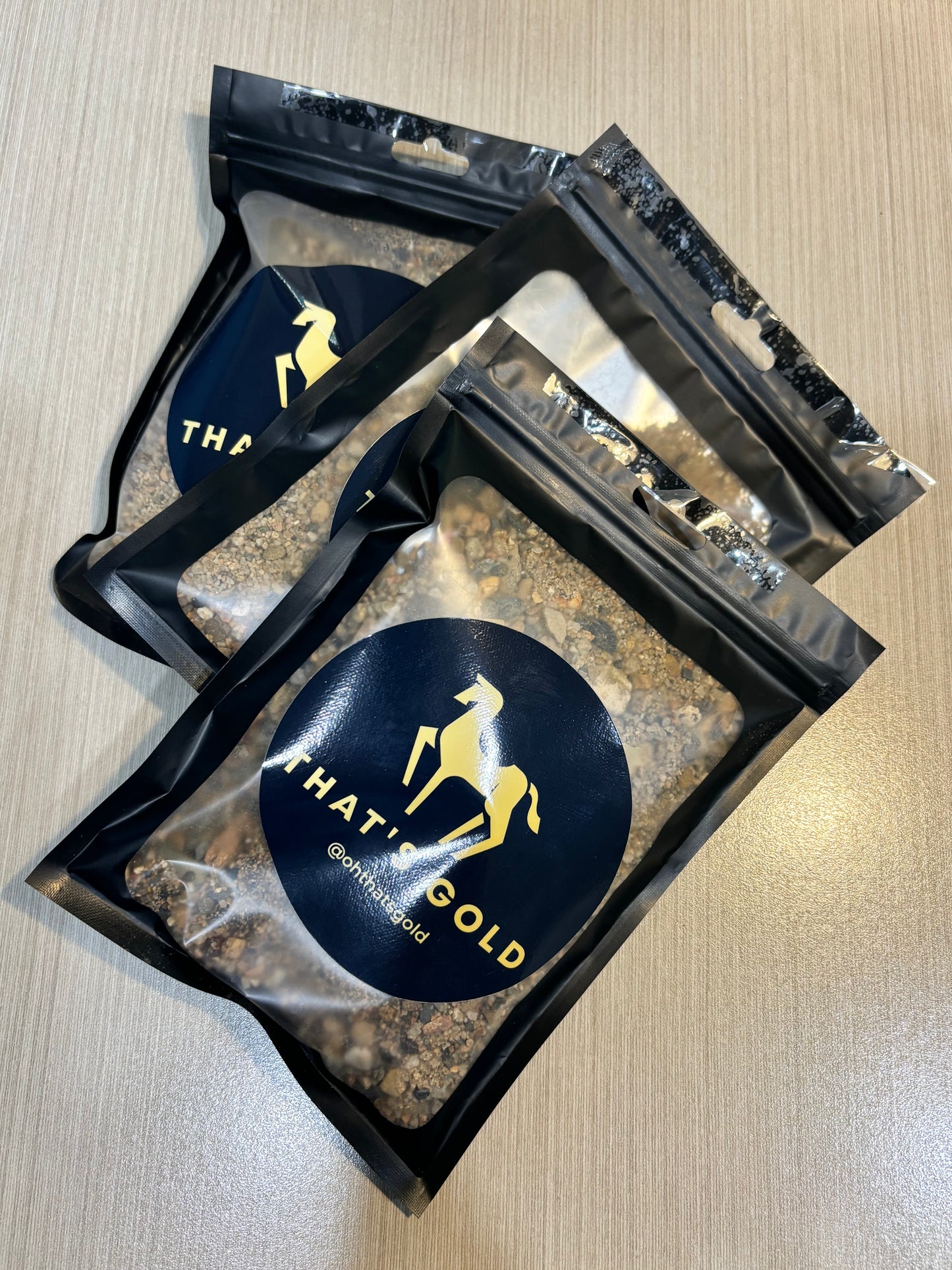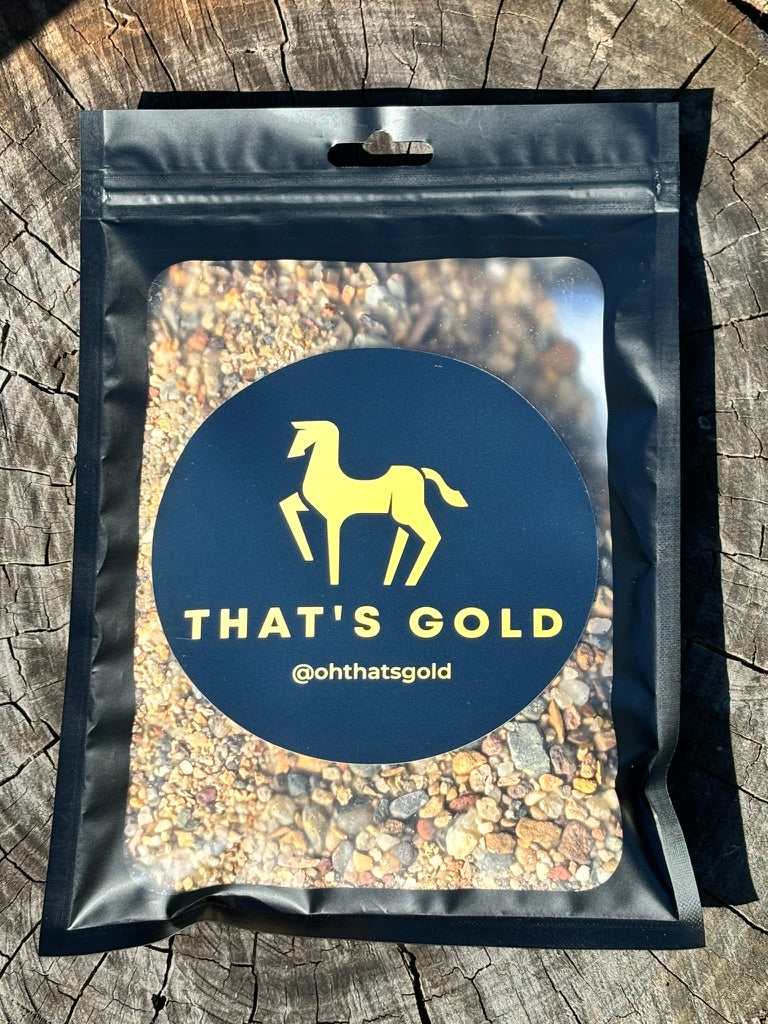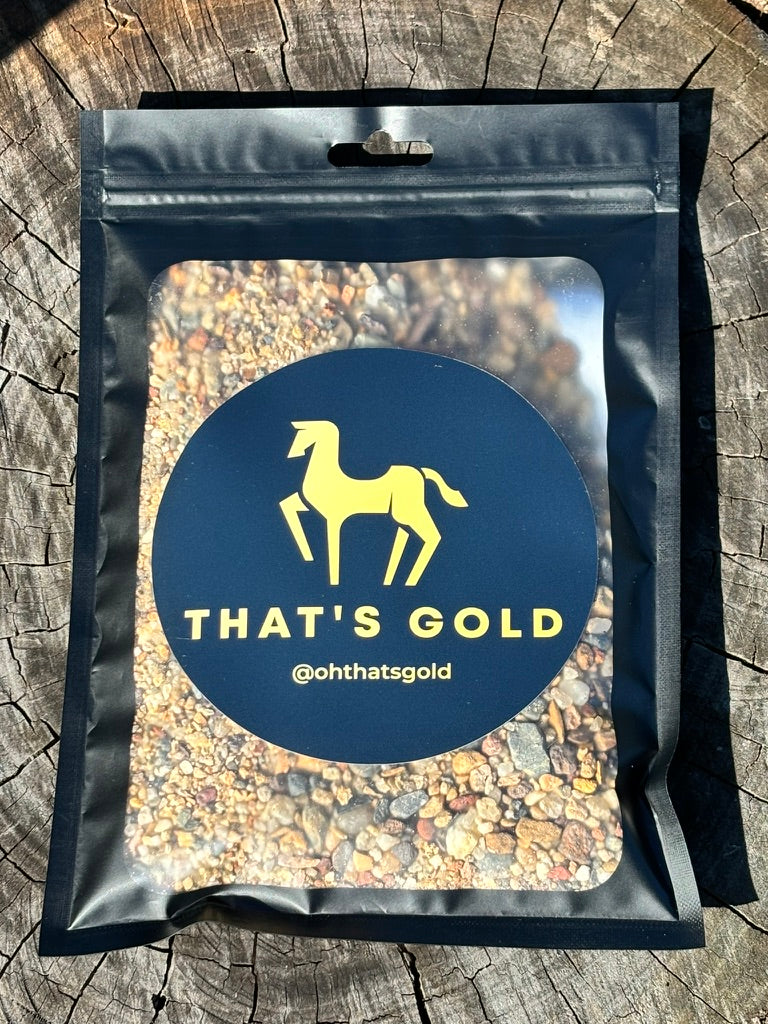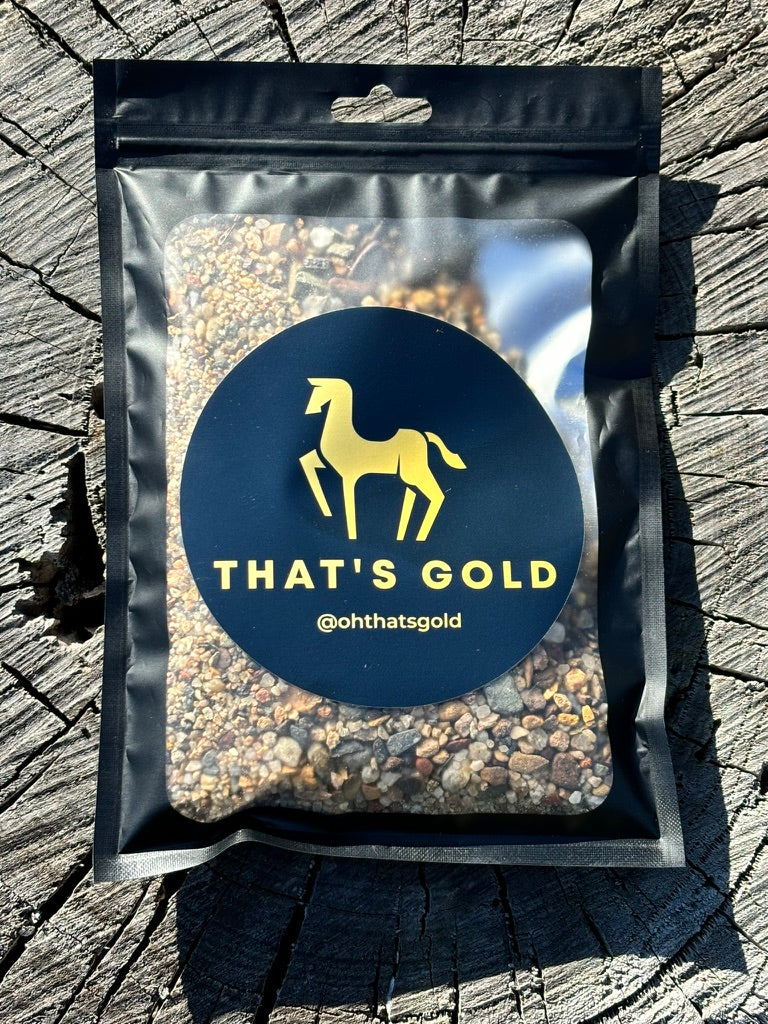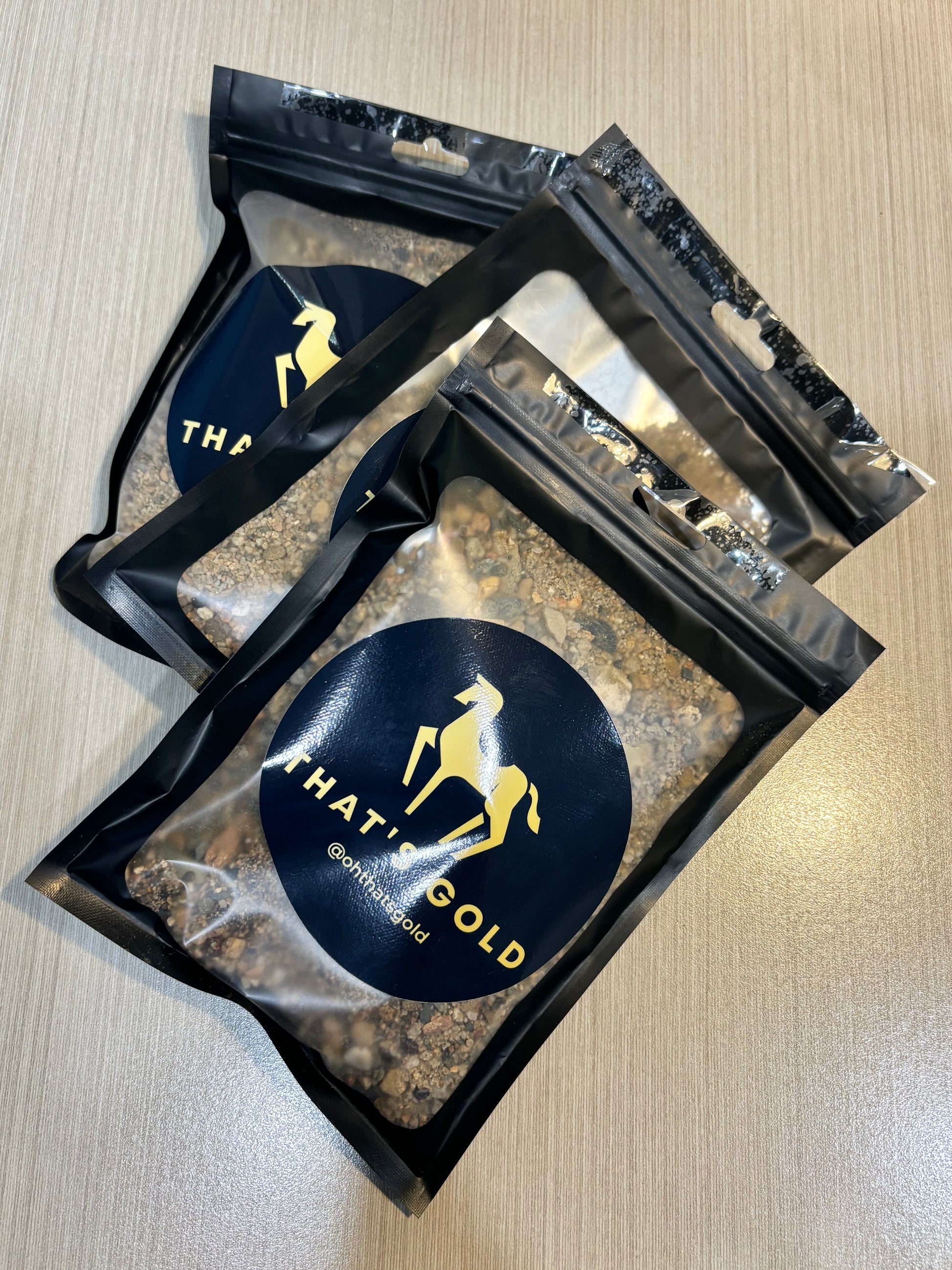Football fans, anglers, and outdoor enthusiasts often share a love for gold panning. This unique hobby attracts people from different backgrounds who enjoy the thrill of discovery and spending time in nature. Many Aussies who follow AFL, rugby league, or soccer also find joy in sifting through riverbeds for gold flakes and nuggets.
Gold panning appeals to those who like fishing, camping, and four-wheel driving. These activities often go hand in hand, as they all involve getting out in the bush and exploring remote areas. People who enjoy these pursuits tend to be patient, observant, and keen to connect with the natural world.
The crossover between these hobbies makes sense. They all offer a chance to escape the daily grind and experience adventure. Whether it's cheering for a footy team, catching fish, or finding gold, these activities bring excitement and a sense of achievement.
Key Takeaways
- Football fans and outdoor enthusiasts often enjoy gold panning as a hobby
- Fishing, camping, and four-wheel driving enthusiasts are likely to try gold panning
- Gold panning offers a unique way to connect with nature and experience adventure
The Intersection of Football Codes and Gold Panning
Football fans and gold panning enthusiasts share some surprising connections. These two seemingly different hobbies attract people with similar interests and backgrounds.
Understanding the Appeal
Many footy fans enjoy outdoor activities like gold panning. Both pursuits offer a mix of excitement and relaxation. Football matches provide thrills and social bonding, while gold panning offers a peaceful escape in nature with the chance of striking it rich.
Some fans plan camping trips around away games, combining their love of sport with outdoor adventures. This allows them to explore new areas and try activities like panning.
Gold panning can be a social activity too. Mates who watch footy together might also go on panning trips, swapping stories over the campfire.
Cultural and Demographic Insights
Football codes and gold panning have strong roots in Australian culture. Both attract people who value tradition and mateship. Rural and regional areas often have passionate footy supporters and good gold panning spots.
Men aged 30-60 make up a large part of both groups. They often enjoy other outdoor hobbies like fishing and four-wheel driving. These activities let them spend time in the bush and bond with friends and family.
Some clubs even organise gold panning events for members. It's a unique way to build community and raise funds. These outings tap into shared interests and create memorable experiences beyond the footy field.
Fishing Enthusiasts' Affinity for Gold Panning
Many fishing fans also enjoy gold panning. These outdoor activities share common traits that appeal to nature lovers.
Both hobbies let people spend time by rivers and streams. Fishers and gold panners alike enjoy the peace and quiet of remote spots.
Patience is key for fishing and gold panning. Both need careful technique and a keen eye to spot the prize, be it a fish or a gold flake.
The thrill of the hunt draws people to both pursuits. Finding gold or catching a big fish gives a similar rush of excitement.
Gear for fishing and gold panning can be simple or high-tech. Basic tools like pans and rods are easy to pack for a day trip.
Many keen fishers and gold panners also love camping. A weekend away combines these pastimes with the fun of sleeping under the stars.
Four-wheel driving often goes hand in hand with these hobbies. A 4WD helps reach out-of-the-way fishing spots and gold fields.
Some popular Aussie spots offer both fishing and gold panning. Places like the Victorian goldfields have rivers good for both activities.
Gold Panning and Camping: A Symbiotic Relationship
Gold panning and camping go hand in hand. These two activities share gear, settings, and a love of the outdoors.
Essential Gear for Dual Hobbyists
A gold pan is the most basic tool for prospecting. It's small, light, and easy to pack. Campers often bring pots and pans, which can double as gold pans in a pinch.
Shovels and buckets are useful for both hobbies. They help dig fire pits and move dirt for gold hunting.
A sluice box is handy for processing more material. It's portable and fits well in a car boot with other camping gear.
Warm, waterproof clothes are a must for both activities. Gumboots keep feet dry while wading in streams.
Identifying Ideal Locations
Rivers and creeks are prime spots for gold panning and camping. Look for bends in rivers where gold might settle.
Old gold rush sites often have good camping grounds nearby. These areas may still yield gold and offer rich history.
National parks with gold panning zones are perfect. They provide safe camping spots and legal areas to search for gold.
Remote beaches can be great for both activities. Some coastal areas allow gold panning and offer stunning camp views.
Always check local rules before panning or camping. Some spots might need permits or have restrictions.
The 4WD Community and Gold Panning
The 4WD community and gold panning enthusiasts often share common interests. Many 4WD owners use their vehicles to access remote areas where gold panning is possible.
These off-road vehicles allow prospectors to reach secluded streams and rivers that might hold untapped gold deposits. The rugged nature of 4WDs makes them ideal for traversing rough terrain to get to prime panning locations.
Gold panning and 4WD adventures often go hand in hand with camping. Many enthusiasts combine these activities for weekend getaways or longer trips. They pack their 4WDs with camping gear, gold panning equipment, and supplies for extended stays in the bush.
Some popular 4WD destinations in Australia also happen to be known for their gold panning opportunities. This includes areas in Victoria, New South Wales, and Western Australia.
4WD clubs sometimes organise group trips that include gold panning activities. These outings allow members to share their knowledge and skills in both 4WD driving and gold prospecting.
The combination of 4WD exploration and gold panning appeals to those who enjoy outdoor adventures and the thrill of potentially striking it rich. It's a hobby that brings together the excitement of off-road driving with the patience and skill required for gold panning.
Comparing Equipment and Techniques Across Hobbies
Football codes, gold panning, fishing, camping, and 4WD adventures have some surprising equipment overlaps. Sturdy boots are essential for all these activities. They protect feet on rugged terrain and provide grip on slippery surfaces.
Waterproof gear is another common necessity. Football players use it for rainy matches, while gold panners, anglers, and campers need it to stay dry near water bodies.
Gold panning and fishing share some tools. Both use sieves or nets to separate items from water. Pans for gold are like larger versions of fishing tackle boxes, holding equipment and finds.
Camping gear often comes in handy for other hobbies. Tents and sleeping bags are useful for overnight fishing trips or extended gold panning expeditions. Portable stoves and coolers are great for preparing meals at football matches or on 4WD trips.
4WD vehicles are valuable across these hobbies. They can transport football teams to remote grounds, reach isolated gold panning spots, and access prime fishing locations. Their cargo space is perfect for hauling camping gear or bulky sports equipment.
Safety equipment is crucial in all these activities. First aid kits, sun protection, and appropriate clothing are must-haves. Each hobby also has its specific safety gear, like helmets for football or life jackets for water activities.
Environmental Considerations and Best Practices
Enjoying outdoor activities like gold panning, camping, fishing, and 4WD adventures comes with a responsibility to protect nature. These simple practices help preserve the environment for future generations.
Sustainable Gold Panning
Gold panning can harm stream ecosystems if not done carefully. Use eco-friendly pans and tools made from recycled materials. Avoid using mercury or other toxic chemicals to extract gold.
Stick to designated areas for panning. Don't disturb stream banks or vegetation. Return rocks and gravel to their original spots after panning. This helps maintain natural habitats for fish and other wildlife.
Take only what you need and leave some gold for others to discover. Pack out all rubbish, including any micro-plastics you might find while panning.
Leaving No Trace While Camping
Camping lets us connect with nature, but it's vital to minimise our impact. Choose established campsites when possible. If wild camping, set up on durable surfaces like rock, gravel, or dry grass.
Keep fires small and use existing fire rings. Better yet, use a camping stove. Collect only dead and fallen wood for fires. Never cut live trees or branches.
Pack out all rubbish, including food scraps. Use biodegradable soap for washing up, and do it at least 50 metres away from water sources. Bury human waste in cat holes 15-20 cm deep and 60 metres from water.
Responsible Fishing Techniques
Sustainable fishing helps maintain healthy fish populations. Use barbless hooks to reduce harm to fish you plan to release. Learn proper catch-and-release methods to improve fish survival rates.
Follow local fishing rules and bag limits. These protect fish stocks and breeding cycles. Use lead-free sinkers and lures to prevent toxic metal pollution in waterways.
Clean your fishing gear between trips to stop the spread of invasive species. Don't dump bait or unwanted fish in the water. This can harm local ecosystems.
Pick up any fishing line or other rubbish you find. Even small bits of line can entangle and kill wildlife.
Economic Impact and Tourism Opportunities
Gold panning, fishing, camping, and 4WD activities create valuable tourism opportunities. These hobbies bring visitors to rural and regional areas, boosting local economies.
Tourists spend money on gear, supplies, accommodation, and food. This spending supports jobs in small towns and remote regions. Local businesses like petrol stations, cafes, and shops benefit from increased foot traffic.
Many areas promote these activities to attract more visitors. Tourism boards highlight natural attractions and outdoor recreation options. This can lead to improved facilities and infrastructure in popular spots.
Some key economic impacts include:
- Job creation in tourism and hospitality sectors
- Increased revenue for local businesses
- Development of new tourism products and services
- Improved regional infrastructure
Combining multiple activities appeals to a wider range of tourists. For example, a 4WD camping trip might include stops for fishing and gold panning. This encourages longer stays and higher spending.
Events like gold panning competitions or fishing tournaments can draw large crowds. These events provide a significant boost to local economies over a short period.
Tourism linked to these activities can help diversify regional economies. This is especially important in areas that have relied on industries like mining or agriculture.
Profiles of Multi-Faceted Hobbyists
Many people enjoy a mix of outdoor activities and sports. Some football fans find themselves drawn to the thrill of gold panning on weekends. These enthusiasts appreciate both the teamwork of footy and the solitary pursuit of nuggets.
Fishing lovers often branch out into gold panning as well. The two hobbies share a focus on patience and being in nature. Many anglers find that panning fits nicely into their outdoor lifestyle.
Campers and 4WD enthusiasts frequently add gold panning to their hobby list. These outdoor buffs enjoy exploring remote areas, making panning a natural fit. Their gear and vehicles allow easy access to prime panning spots.
A typical multi-faceted hobbyist might enjoy:
- Watching AFL matches on Friday nights
- Panning for gold on Saturday mornings
- Fishing in the afternoon
- Camping overnight
- 4WD adventures on Sunday
This mix of interests keeps life exciting and varied. It allows people to stay active, social, and engaged with nature. Multi-hobby enthusiasts often form clubs or groups to share their passions.
By combining these pursuits, hobbyists create a rich, fulfilling lifestyle. They reap the benefits of diverse skills, experiences, and social circles.
How to Get Started with Gold Panning
Gold panning is an exciting hobby that combines outdoor adventure with the thrill of treasure hunting. It's a great way to connect with nature and potentially strike it rich.
To begin, you'll need some basic equipment. A gold pan is essential - choose a plastic or metal one about 35-40 cm in diameter. A shovel and a classifier sieve are also useful tools.
Next, find a suitable location. Rivers and creeks with a history of gold deposits are ideal. Research local regulations and obtain any necessary permits before you start.
When you're ready to pan, fill your pan with dirt and gravel from the riverbed. Submerge it in water and use a circular motion to wash away lighter materials.
Tilt the pan and shake it gently to help the gold settle at the bottom. Repeat this process, gradually removing lighter sediment until only heavy materials remain.
Practice your technique to improve your chances of success. It takes patience and skill to spot those tiny gold flakes.
Remember to bring sun protection, sturdy shoes, and plenty of water. Gold panning can be physically demanding, so take regular breaks.
Join a local prospecting club to learn from experienced panners and discover the best spots. With practice and persistence, you might just strike gold!
Frequently Asked Questions
Gold panning attracts people from diverse hobbies. Many enjoy it alongside fishing, camping, and 4WD adventures. Football fans also find gold panning appealing.
What are the similarities between gold panning and recreational fishing?
Gold panning and fishing share common traits. Both need patience and keen observation. They take place in natural settings like rivers and streams. Each activity gives a thrill of discovery when successful.
Is there a correlation between the enjoyment of football codes and gold panning?
Some football fans also like gold panning. Both pursuits offer excitement and the chance to be outdoors. Football and gold panning can be social activities, bringing people together.
What is the appeal of gold panning for enthusiasts of camping and 4WD adventures?
Gold panning fits well with camping and 4WD trips. It adds purpose to outdoor adventures. Panning lets people explore remote areas while seeking treasure. The activity blends nicely with the outdoor lifestyle.
What equipment is essential for someone starting out in gold panning?
Beginners need basic tools for gold panning. A gold pan is crucial. Other items include a shovel, classifier, and snuffer bottle. Rubber boots and gloves are helpful. A hat and sunscreen protect against the sun.
How do different colours of panning pans affect the visibility of gold during prospecting?
Pan colour can impact gold visibility. Black pans provide good contrast with gold. Green pans work well in bright light. Blue pans are also popular. The choice often depends on personal preference and lighting conditions.
Can gold panning also be considered a family-friendly outdoor activity?
Gold panning is great for families. It teaches kids about nature and geology. The activity is safe and easy to learn. Families can bond while searching for gold together. It offers a mix of fun and education outdoors.

